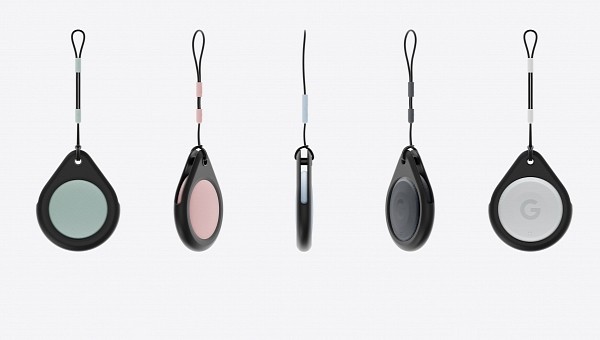While GPS trackers have been around for a very long time, Apple’s AirTag has completely changed this concept.
Given it’s based on the Find My network, the AirTag can send its location from virtually anywhere, as it only needs to connect to a nearby iPhone to be able to share such details.
The AirTag has unfortunately become a very popular device among people with nefarious ideas, and given its small form factor, criminals ended up planting it in the weirdest places, including behind the license plates of cars. Their scary purpose was to keep track of victims and know precisely where they are.
On the other hand, such GPS devices certainly come in handy whenever we need to keep an eye on our belongings. And this is why Apple isn’t the only company investing in this concept, with others, including Samsung, launching their very own alternatives.
Google could be the next big name to join this club, and concept designer Obi Fidler tried to envision what the search giant’s device may look like using a new design project.
Called G Spot, the tracker certainly has the most unusual name, though, in some regards, it actually makes sense, especially because it helps you find things that you don’t know where they are (no pun intended, I assure you).
With a super-small form factor, the proposed Google GPS tracker looks just like an AirTag, and at some level, this isn’t necessarily a surprise given this is an approach that just works. Such a design allows for the tracker to be attached to your keys or just carried with you wherever you go in a backpack or a wallet.
Just like Apple, Google has a very advanced hardware and software arsenal to make this GPS tracker, including a Tensor chip to power it. With Tensor, Google should theoretically be able to optimize the battery life in the most aggressive way, and the concept envisions an autonomy of at least one year with just a single CR2032 battery.
Google’s superstars, including here Google Assistant and Google Maps, would help locate the device. Just ask Google, uhm, “Hey, Google, where’s my G Spot?” and Google Assistant should then provide you with location information with the help of Google Maps.
Everything makes perfect sense, and it’ll be interesting to see if Google indeed ends up launching its very own GPS tracker. The market for such a product does exist, but on the other hand, I’m pretty sure the Mountain View-based company would go for another name for obvious reasons. For the time being, however, the search behemoth has remained tight-lipped on an AirTag rival, so you’d better not hold your breath for such a Google device just yet.
The AirTag has unfortunately become a very popular device among people with nefarious ideas, and given its small form factor, criminals ended up planting it in the weirdest places, including behind the license plates of cars. Their scary purpose was to keep track of victims and know precisely where they are.
On the other hand, such GPS devices certainly come in handy whenever we need to keep an eye on our belongings. And this is why Apple isn’t the only company investing in this concept, with others, including Samsung, launching their very own alternatives.
Google could be the next big name to join this club, and concept designer Obi Fidler tried to envision what the search giant’s device may look like using a new design project.
Called G Spot, the tracker certainly has the most unusual name, though, in some regards, it actually makes sense, especially because it helps you find things that you don’t know where they are (no pun intended, I assure you).
With a super-small form factor, the proposed Google GPS tracker looks just like an AirTag, and at some level, this isn’t necessarily a surprise given this is an approach that just works. Such a design allows for the tracker to be attached to your keys or just carried with you wherever you go in a backpack or a wallet.
Just like Apple, Google has a very advanced hardware and software arsenal to make this GPS tracker, including a Tensor chip to power it. With Tensor, Google should theoretically be able to optimize the battery life in the most aggressive way, and the concept envisions an autonomy of at least one year with just a single CR2032 battery.
Google’s superstars, including here Google Assistant and Google Maps, would help locate the device. Just ask Google, uhm, “Hey, Google, where’s my G Spot?” and Google Assistant should then provide you with location information with the help of Google Maps.
Everything makes perfect sense, and it’ll be interesting to see if Google indeed ends up launching its very own GPS tracker. The market for such a product does exist, but on the other hand, I’m pretty sure the Mountain View-based company would go for another name for obvious reasons. For the time being, however, the search behemoth has remained tight-lipped on an AirTag rival, so you’d better not hold your breath for such a Google device just yet.









